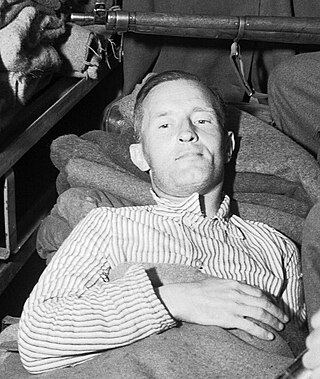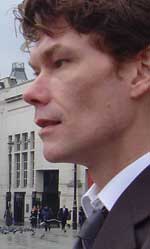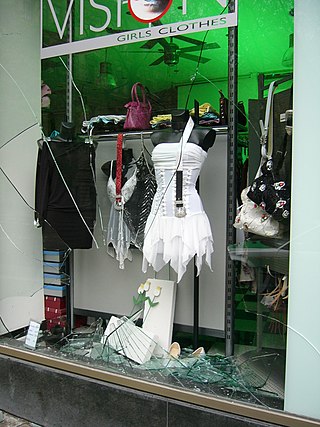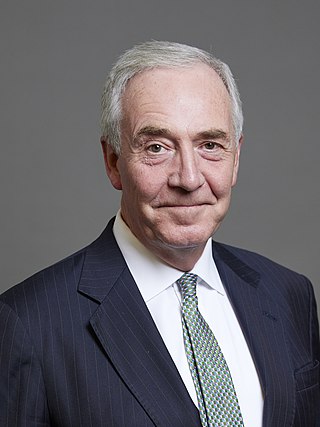Related Research Articles

The Computer Fraud and Abuse Act of 1986 (CFAA) is a United States cybersecurity bill that was enacted in 1986 as an amendment to existing computer fraud law, which had been included in the Comprehensive Crime Control Act of 1984. Prior to computer-specific criminal laws, computer crimes were prosecuted as mail and wire fraud, but the applying law was often insufficient.

Robin Brunskill Cooke, Baron Cooke of Thorndon, was a New Zealand judge and later a British Law Lord and member of the Judicial Committee of the Privy Council. He is widely considered one of New Zealand's most influential jurists, and is the only New Zealand judge to have sat in the House of Lords. He was a Non-Permanent Judge of the Court of Final Appeal of Hong Kong from 1997 to 2006.
The Hacker's Handbook is a non-fiction book in four editions, each reprinted numerous times between 1985 and 1990, and explaining how phone and computer systems of the period could be 'hacked'. It contains candid and personal comments from the book's British author, Hugo Cornwall, a pseudonym of Peter Sommer who is now Professor of Digital Forensics at Birmingham City University, and frequently appears in the United Kingdom courts as an expert on digital evidence and computer forensics for both prosecution and defence as well as being a media pundit and author on information security topics. He advised the UK Parliament on the Investigatory Powers Act, 2016.

Under the law of the United Kingdom, high treason is the crime of disloyalty to the Crown. Offences constituting high treason include plotting the murder of the sovereign; committing adultery with the sovereign's consort, with the sovereign's eldest unmarried daughter, or with the wife of the heir to the throne; levying war against the sovereign and adhering to the sovereign's enemies, giving them aid or comfort; and attempting to undermine the lawfully established line of succession. Several other crimes have historically been categorised as high treason, including counterfeiting money and being a Catholic priest.

Prestel was the brand name of a videotex service launched in the UK in 1979 by Post Office Telecommunications, a division of the British Post Office. It had around 95,500 attached terminals at its peak, and was a forerunner of the internet-based online services developed in the late 20th and early 21st centuries. Prestel was discontinued in 1994 and its assets sold by British Telecom to a company consortium.
Whitehouse v Lemon is a 1977 court case involving the blasphemy law in the United Kingdom. It was the last successful blasphemy trial in the UK.

Micronet 800 was an information provider (IP) on Prestel, aimed at the 1980s personal computer market. It was an online magazine that gave subscribers computer related news, reviews, general subject articles and downloadable telesoftware.

The Computer Misuse Act 1990 is an act of the Parliament of the United Kingdom, introduced partly in response to the decision in R v Gold & Schifreen (1988) 1 AC 1063. Critics of the bill complained that it was introduced hastily, was poorly thought out, and that intention was often difficult to prove, with the bill inadequately differentiating "joyriding" hackers like Gold and Schifreen from serious computer criminals. The Act has nonetheless become a model from which several other countries, including Canada and the Republic of Ireland, have drawn inspiration when subsequently drafting their own information security laws, as it is seen "as a robust and flexible piece of legislation in terms of dealing with cybercrime". Several amendments have been passed to keep the Act up to date.
Stephen Gold was a hacker and journalist who in the mid-1980s was charged with, convicted and later acquitted of, 'uttering a forgery' in what became known to the popular press of the time as "The Great Prestel Hack". Gold, and fellow hacker Robert Schifreen, were said to have accessed, inter alia, the personal message account of Prince Philip. The facts as outlined in The Hacker's Handbook are that he was 'fitted' up, having tried, repeatedly and unsuccessfully, to warn BT's Prestel via Micronet of the security holes. Gold later became a "respected information security journalist".

Gary McKinnon is a Scottish systems administrator and hacker who was accused by a US prosecutor in 2002 of perpetrating the "biggest military computer hack of all time". McKinnon said that he was looking for evidence of free energy suppression and a cover-up of UFO activity and other technologies potentially useful to the public. On 16 October 2012, after a series of legal proceedings in Britain, then Home Secretary Theresa May blocked extradition to the United States.
A security hacker or security researcher is someone who explores methods for breaching defenses and exploiting weaknesses in a computer system or network. Hackers may be motivated by a multitude of reasons, such as profit, protest, information gathering, challenge, recreation, or evaluation of a system weaknesses to assist in formulating defenses against potential hackers.
Assault occasioning actual bodily harm is a statutory offence of aggravated assault in England and Wales, Northern Ireland, the Australian Capital Territory, New South Wales, Hong Kong and the Solomon Islands. It has been abolished in the Republic of Ireland and in South Australia, but replaced with a similar offence.
In criminal law, a conspiracy is an agreement between two or more people to commit a crime at some time in the future. Criminal law in some countries or for some conspiracies may require that at least one overt act be undertaken in furtherance of that agreement to constitute an offense. There is no limit to the number participating in the conspiracy, and in most countries the plan itself is the crime, so there is no requirement that any steps have been taken to put the plan into effect.

Criminal damage in English law was originally a common law offence. The offence was largely concerned with the protection of dwellings and the food supply, and few sanctions were imposed for damaging personal property. Liability was originally restricted to the payment of damages by way of compensation.
Sir Thomas Scott Gillespie Baker, PC is a retired English Court of Appeal judge. Scott Baker is the eldest son of Sir George Baker, a former High Court judge who was President of the Family Division from 1971 to 1979. One of his brothers, Judge Michael Baker, KC, was the Resident judge at St Albans Crown Court.
Laws regarding "unauthorized access of a computer network" exist in many legal codes, though the wording and meaning differs from one to the next. However, the interpretation of terms like "access" and "authorization" is not clear, and there is no general agreement on whether piggybacking falls under this classification. Some jurisdictions prohibit it, some permit it, and others are not well-defined.
Rape is a statutory offence in England and Wales. The offence is created by section 1 of the Sexual Offences Act 2003:
(1) A person (A) commits an offence if—
(2) Whether a belief is reasonable is to be determined having regard to all the circumstances, including any steps A has taken to ascertain whether B consents.
(3) Sections 75 and 76 apply to an offence under this section.(4) A person guilty of an offence under this section is liable, on conviction on indictment, to imprisonment for life.

Errors as to precedent facts, sometimes called jurisdictional facts, in Singapore administrative law are errors committed by public authorities concerning facts that must objectively exist or not exist before the authorities have the power to take actions or make decisions under legislation. If an error concerning a precedent fact is made, the statutory power has not been exercised lawfully and may be quashed by the High Court if judicial review is applied for by an aggrieved person. The willingness of the Court to review such errors of fact is an exception to the general rule that the Court only reviews errors of law.
The first signs of the modern distinction between criminal and civil proceedings were during the Norman conquest of England in 1066. The earliest criminal trials had very little, if any, settled law to apply. However, the civil delictual law was highly developed and consistent in its operation.

David William Kinloch Anderson, Baron Anderson of Ipswich, is a British barrister and life peer, who was the Independent Reviewer of Terrorism Legislation in the United Kingdom between 2011 and 2017. On 8 June 2018 it was announced that he would be introduced to the House of Lords as a cross-bench (non-party) working peer. On the same day he was appointed a Knight Commander of the Order of the British Empire (KBE), for services to national security and civil liberties, in the Queen's 2018 Birthday Honours.
References
- ↑ "Two face computer charge", The Times, 13 June 1985, p. 2.
- ↑ "Prestel password 'blunder helped hacker'", The Times, 16 April 1986.
- ↑ "Hacker who broke into Duke's computer file found guilty of forgery", The Times, 25 April 1986.
- ↑ 'Hacking' into Prestel is not a Forgery Act offence" (Law Report), The Times, 21 July 1987.
- ↑ "Computer 'hacking' is not forgery" (Law Report), The Times, 22 April 1988.
- 1 2 "BCS Computer Bulletin: September 2002 Interview". British Computer Society . Retrieved 2 October 2010.
- ↑ Wendy Grossman, "The strong arm of the law", The Guardian, 22 September 1994, p. 5.
- ↑ Schifreen, Robert (2006). Defeating the hacker: a non-technical guide to computer security. Chichester: John Wiley and Sons Ltd. ISBN 9780470025550.